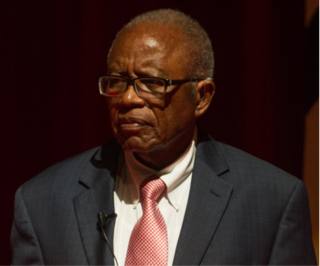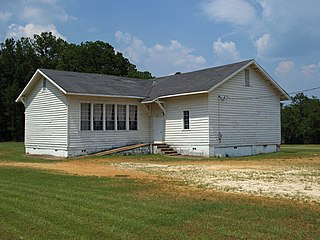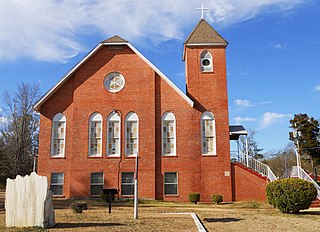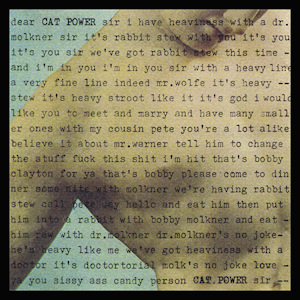Shiloh Missionary Baptist Church and Rosenwald School | |
 Shiloh Missionary Baptist Church in 2011 | |
| Nearest city | Notasulga, Alabama |
|---|---|
| Coordinates | 32°31′41″N85°40′40″W / 32.52806°N 85.67778°W Coordinates: 32°31′41″N85°40′40″W / 32.52806°N 85.67778°W |
| NRHP reference # | 10000522 [1] |
| Significant dates | |
| Added to NRHP | August 6, 2010 |
| Designated ARLH | September 20, 2006 |
The Shiloh Missionary Baptist Church and Rosenwald School is a historic Missionary Baptist Church and Rosenwald School located near 7794 Highway 81, Notasulga, Alabama in Macon County, Alabama. The property contains two buildings that are both associated with the Tuskegee Syphilis Study. The church building is a gable-front frame building with a frame bell tower serving as a prominent landmark along the highway. The building has been sided in vinyl, c. 1990, but the interior of the building retains its c. 1916 appearance, complete with decorative painted graining on doors, pews, wainscoting, and other defining features of the building. The Rosenwald School, built c. 1922 and remodeled c. 1936, retains its historical and architectural integrity from the 1930s when a New Deal agency expanded the industrial room and made other interior and exterior changes. The Rosenwald School is undergoing renovation as of February 2011. Both buildings have been listed in the Alabama State Historic Register.
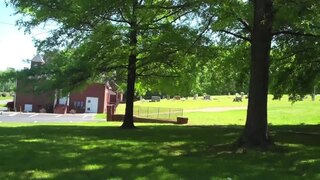
In informal usage, a Rosenwald School was any of the more than five thousand schools, shops, and teacher homes in the United States that were built primarily for the education of African-American children in the South during the early twentieth century. The project was the product of the partnership of Julius Rosenwald, a Jewish-American clothier who became part-owner and president of Sears, Roebuck, and Company and the African American leader, educator, and philanthropist, Booker T. Washington, who was president of Tuskegee Institute.
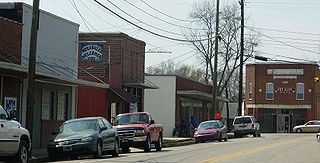
Notasulga is a town in Lee and Macon counties in the U.S. state of Alabama. As of the 2010 census, the population of the town was 965, up from 916 in 2000. The portion in Lee County is part of the Auburn Metropolitan Area. According to the 2010 U.S. Census, it incorporated in 1893. Author Zora Neale Hurston was born in Notasulga in 1891.

Macon County is a county located in the southeastern portion of the U.S. state of Alabama. As of the 2010 census, the population was 21,452. Its county seat is Tuskegee. Its name is in honor of Nathaniel Macon, a member of the United States Senate from North Carolina.

One of the most infamous incidents in the medical history of the United States is the study of syphilis, sponsored by the U. S. Public Health Service (USPHS) in Macon County, Alabama, from 1932 to 1973. It is often called "The Tuskegee Study" because the Macon County seat is Tuskegee and a former hospital at Tuskegee Institute (now university) and the Veterans’ Hospital at Tuskegee were used for some of the medical procedures. The Shiloh Missionary Baptist Church is located about 8 miles north of Tuskegee, Alabama.
The medical history, case history, or anamnesis of a patient is information gained by a physician by asking specific questions, either of the patient or of other people who know the person and can give suitable information, with the aim of obtaining information useful in formulating a diagnosis and providing medical care to the patient. The medically relevant complaints reported by the patient or others familiar with the patient are referred to as symptoms, in contrast with clinical signs, which are ascertained by direct examination on the part of medical personnel. Most health encounters will result in some form of history being taken. Medical histories vary in their depth and focus. For example, an ambulance paramedic would typically limit their history to important details, such as name, history of presenting complaint, allergies, etc. In contrast, a psychiatric history is frequently lengthy and in depth, as many details about the patient's life are relevant to formulating a management plan for a psychiatric illness.

Tuskegee University is a private, historically black university (HBCU) located in Tuskegee, Alabama, United States. It was established by Lewis Adams and Booker T. Washington. The campus is designated as the Tuskegee Institute National Historic Site by the National Park Service. The university was home to scientist George Washington Carver and to World War II's Tuskegee Airmen.
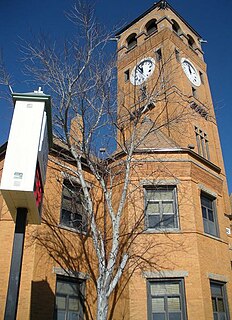
Tuskegee is a city in Macon County, Alabama, United States. It was founded and laid out in 1833 by General Thomas Simpson Woodward, a Creek War veteran under Andrew Jackson, and made the county seat that year. It was incorporated in 1843. It is also the largest city in Macon County. At the 2010 census the population was 9,865, down from 11,846 in 2000.
Notices would be sent to subject of the Tuskegee Syphilis Study. They were instructed to meet at a central location to be picked up for testing. A memo from the USPHS details where these roundups between test doctors and USPHS official took place. The memo stated "The Government will be here next week. Be sure to meet him at the time a place listed below that is nearest your home." The rural location were a combination of churches, schools, and crossroads stores. The Shiloah Missionary Baptist Church was one gathering location.
The buildings and adjacent cemetery were added to the Alabama Register of Landmarks and Heritage on September 20, 2006. They were subsequently added to the National Register of Historic Places on August 6, 2010. [1] [2]

A cemetery or graveyard is a place where the remains of dead people are buried or otherwise interred. The word cemetery implies that the land is specifically designated as a burial ground and originally applied to the Roman catacombs. The term graveyard is often used interchangeably with cemetery, but a graveyard primarily refers to a burial ground within a churchyard.
The Alabama Register of Landmarks and Heritage, commonly referred to as the Alabama Register, is an official listing of buildings, sites, structures, objects, and districts deemed worthy of preservation in the U.S. state of Alabama. These properties, which may be of national, state, and local significance, are designated by the Alabama Historical Commission. The designation is honorary and carries no direct restrictions or incentives. The register includes properties such as cemeteries, churches, moved properties, reconstructed properties, and properties at least 40 years old which may not normally qualify for listing in the National Register of Historic Places. There are approximately 1421 properties and districts listed on the Alabama Register. Of these, approximately 196 are also listed on the National Register of Historic Places and 5 are designated as National Historic Landmarks.

The National Register of Historic Places (NRHP) is the United States federal government's official list of districts, sites, buildings, structures, and objects deemed worthy of preservation for their historical significance. A property listed in the National Register, or located within a National Register Historic District, may qualify for tax incentives derived from the total value of expenses incurred preserving the property.




